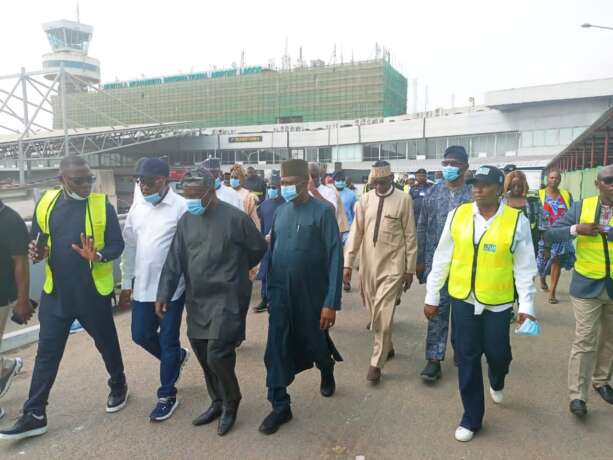
…Says No Cause For Alarm
…Statements Baseless, Unguarded
The Nigerian Civil Aviation Authority (NCAA) has reconfirmed the position of the Nigerian Airspace Management Agency (NAMA) that Nigerian airspace is fully covered by radar; the Total Radar Coverage of Nigeria (TRACON).
NCAA’s reconfirmation of the total radar coverage of the country’s airspace is contained in a statement made available to aviation journalists in Lagos.
To buttress its position, NCAA stated that it investigated two recent cases of violation of the prohibited flights zones – DNP4 – in Abuja and established that both violations consisted of controlled flights in a controlled airspace, but strayed into restricted airspace as a result of adverse weather.
NCAA in the statement also stated that it can also confirm that NAMA had complete radar footage of the two violations with full details of the identities of the aircraft and operators involved.
This, NCAA explained, was only made possible due to functional Primary and Secondary Surveillance Radars in Abuja.
It added that similar installations are in Lagos, Kano and Port-Harcourt.
NCAA, said that in keeping with its regulatory responsibilities issued an All-Operators Letter (AOL DGCA/021/24) wherein the term ‘unknown aircraft’ was used as reported to NCAA which is the normal security terminology.
NCAA, pointed out that as explained above, investigations revealed NAMA had complete footages and details of the aircraft that entered the prohibited flight zone, adding that the writer, obviously not conversant with the technical operations of radar systems ought to have simply consulted the right professionals to be educated accordingly.
For purposes of clarity, NCAA explained that the Primary Surveillance Radar alone only identifies aircraft as moving targets without aircraft identity while the Monopulse Secondary Surveillance Radar (MSSR), on the other hand, which forms a major component of the TRACON, is the equipment that allows for identification of any aircraft equipped with ATC Mode ‘S’ transponder.
NCAA said that the requirement for all aircraft flying in controlled airspace to have serviceable ATC transponders in an international standard that Nigeria ensures strict adherence to.
This requirement, the regulatory body said is derived from Annex 6 to the Convention on International Aviation is documented in Part 7 of the Nigeria Civil Aviation Regulations.
This, it said, makes it a violation of the regulations, and indeed a security breach, for any aircraft to put this system off while flying in controlled airspace, and such action would attract appropriate sanctions in accordance with NCAA’s enforcement procedures, including possible criminal referral.
On the issue of welfare of Air Traffic Controllers (ATCOs), NCAA stated that it had, only recently, intervened in a face-off between ATCOs and NAMA on the need for improved remuneration and working conditions for ATCOs, adding that expectedly, in aligning with the Minister’s five-point agenda on capacity development, NCAA is extending this drive to other aviation professionals.
Also on the improvement of Nigeria’s aviation infrastructure, NCAA said that Nigeria’s Radar coverage is being backed up with five additional MSSR stations at Obubbra, Ilorin, Talata Mafara, Maiduguri and Numan to augment the four existing radar centres to achieve total coverage of the country.
This, NCAA noted, is also in line with the Minister’s five-point agenda on infrastructure and fully supported by NCAA’s oversight in ensuring installed infrastructure continually delivers the desired output.
Such upgrade, NCAA said is normal global practice when dealing with any electronics system, stressing that these systems must be updated from time to time since technology is not static, and the authority through its continuous oversight has not found NAMA wanting in this regard.
The regulatory body said that NAMA in coordination with the Federal Ministry of Aviation and Aerospace Development is working on system upgrade of the Communication, Navigation and Surveillance (CNS) infrastructure.
NCAA assured the public that there is no cause for alarm as everything necessary is being undertaken to ensure safe and secure air navigation in Nigeria’s airspace.






